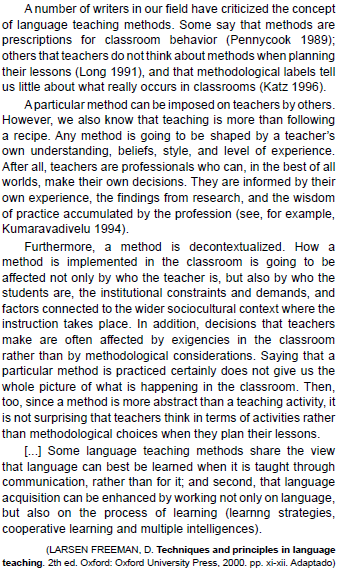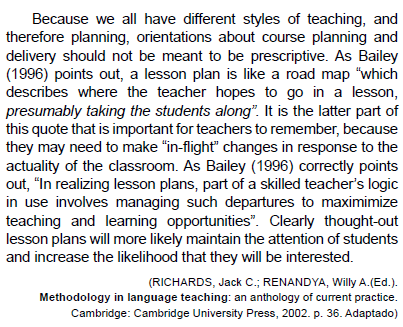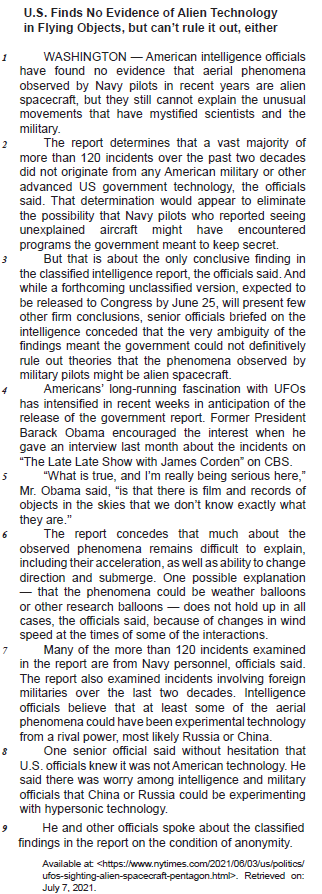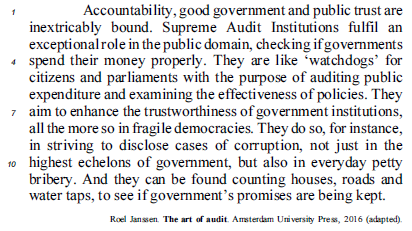In May 2021, a hole was found in a robotic arm aboard the International Space Station (ISS). The suspected culprit was a piece of rogue space junk. While thankfully no astronauts were injured, it has re-focussed attention on the growing problem of orbital debris.
The word “Yet” (third paragraph) acts as an indicator of time.
Life on a desert island
Alexander,L.G.
Most of us have formed an unrealistic picture of life on a desert island. We sometimes imagine a desert island to be a sort of paradise where the sun always shines. Life there is simple and good. Ripe fruit falls from the trees and you never have to work. There is also the other side of the picture: Life on a desert island is wretched - you either starve to death or live like Robison Crusoe waiting for a boat which never comes. Perhaps there is an element of truth in both these pictures, but few of us have had the opportunity to find out.
Two men who recently spent five days on a coral island whished they had stayed there no longer. They were taking a badly damaged boat from the Virgin Islands to Miami to have it repaired. During the journey, their boat began to sink. They quickly loaded a small rubber dinghy with food, matches, and cans of beer and rowed for a few miles across the Caribbean until they arrived at a tiny coral island. There were hardly any trees on the island and there was no water to drink, but this didn’t prove to be a problem since the men collected rain-water in the rubber dinghy. As they
had brought a spear gun with them, they had plenty to eat. They caught lobster and fish every day, and, as one of them put it, “ate like kings”. When a passing tanker rescued them five days later, both men were genuinely sorry that they had to leave.
New concept English. Developing skills: an integrated course for intermediate students.
“Life there is simple and good. Ripe fruit falls from the trees and you never have to work.” These sentences could be connected by the word:
The lion and the four bulls
Clarke, M.
A lion used to walk about a field in which four bulls lived. Many times he tried to attack them, but whenever he came near, they turned their tails toward one another so that whichever way the lion tried to attack, he would have to face the horns of one of them.
At last, however, the bulls started arguing with each other, and each went off to a different part of the field by himself. Then the lion attacked them one by one and soon had killed all four.
Ann Arbor: The University of Michigan Press, 1996.p.138
In the fragment “At last, however, the bulls...”, the word however means the same as:
In the sentence “Either mom’s cooking dinner or somebody got sick at home.”, the expression either...or gives an idea of:
How facial recognition technology aids police

Police officers’ ability to recognize and locate individuals with a history of committing crime is vital to their work. In fact, it is so important that officers believe possessing it is fundamental to the craft of effective street policing, crime prevention and investigation. However, with the total police workforce falling by almost 20 percent since 2010 and recorded crime rising, police forces are turning to new technological solutions to help enhance their capability and capacity to monitor and track individuals about whom they have concerns.
One such technology is Automated Facial Recognition (known as AFR). This works by analyzing key facial features, generating a mathematical representation of them, and then comparing them against known faces in a database, to determine possible matches. While a number of UK and international police forces have been enthusiastically exploring the potential of AFR, some groups have spoken about its legal and ethical status. They are concerned that the technology significantly extends the reach and depth of surveillance by the state.
Until now, however, there has been no robust evidence about what AFR systems can and cannot deliver for policing. Although AFR has become increasingly familiar to the public through its use at airports to help manage passport checks, the environment in such settings is quite controlled. Applying similar procedures to street policing is far more complex. Individuals on the street will be moving and may not look directly towards the camera. Levels of lighting change, too, and the system will have to cope with the vagaries of the British weather.
[…]
As with all innovative policing technologies there are important legal and ethical concerns and issues that still need to be considered. But in order for these to be meaningfully debated and assessed by citizens, regulators and law-makers, we need a detailed understanding of precisely what the technology can realistically accomplish. Sound evidence, rather than references to science fiction technology --- as seen in films such as Minority Report --- is essential.
With this in mind, one of our conclusions is that in terms of describing how AFR is being applied in policing currently, it is more accurate to think of it as “assisted facial recognition,” as opposed to a fully automated system. Unlike border control functions -- where the facial recognition is more of an automated system -- when supporting street policing, the algorithm is not deciding whether there is a match between a person and what is stored in the database. Rather, the system makes suggestions to a police operator about possible similarities. It is then down to the operator to confirm or refute them.
By Bethan Davies, Andrew Dawson, Martin Innes (Source: https://gcn.com/articles/2018/11/30/facial-recognitionpolicing.aspx, accessed May 30th, 2020)
In “Until now, however”, the word “however” introduces the notion of
The discourse markers Furthermore and In addition, which introduce new sentences in the third paragraph, can be correctly replaced by
No trecho “It is the latter part of this quote that is important for teachers to remember”, the underlined word can be correctly replaced by
In paragraph 7, the word However in the fragment “In the humanoid league, the players are human-like robots with human-like senses. However, they are rather slow” can be replaced, without change in meaning, by
In the 6th paragraph of the text, the highlighted expression as well as, in the fragment “as well as ability to change direction and submerge” is associated with the idea of
Text 1:
How being bilingual can boost your career
Whether you’re fresh out of college or a seasoned executive, insiders agree that fluency in a second language can not only help you stand out among prospective employers, it can also open doors to opportunities that those without foreign language skills might miss.
In today’s global economy, the ability to communicate in another language has become a significant advantage in the workforce. Research has found that people who speak at least one foreign language have an average annual household income that’s $10,000 higher than the household income of those who only speak English. And about 17 percent of those who speak at least one foreign language earn more than $100,000 a year.
A recent survey found that nearly 9 out of 10 headhunters in Europe, Latin America, and Asia say that being at least bilingual is critical for success in today’s business environment. And 66 percent of North American recruiters agreed that being bilingual will be increasingly important in the next 10 years.
“In today’s global economy you really have to understand the way business is done overseas to maximize your potential. A second language equips you for that,” says Alister Wellesley, managing partner of a Connecticut-based recruiting firm. “If you’re doing business overseas, or with someone from overseas, you obtain a certain degree of respect if you’re able to talk in their native language.”
Language skills can also be key for service industries. At the Willard InterContinental Washington, a luxury hotel a few blocks from the White House, a staff of about 570 represents 42 nations, speaking 19 languages. The Willard’s front-of-house employees such as the concierge speak at least two languages. Bilingualism is not an absolute requirement, but it is desirable, according to Wendi Colby, director of human resources.
Workers with skills in a second language may have an edge when it comes to climbing Willard’s professional ladder. “The individual that spoke more languages would have a better chance for a managerial role, whatever the next level would be,” Colby says. “They are able to deal with a wide array of clients, employees.”
So which languages can give you a leg up on the job market? Insiders agree the most popular – and marketable – languages are Spanish, German, French, Italian, Russian and Japanese, with a growing emphasis on Mandarin, given China’s booming economy. So let’s learn Mandarin!
“We see demand from a full range of industries,” says Wellesley. “Actually it depends on which company you’re working for and the country in which they’re located.”
The sentence “Bilingualism is not an absolute requirement, but it is desirable” could be rewritten, with no change in meaning, as:
In terms of comprehension of the text above, decide which of the statements below is correct.
PART I - For the question, after reading the text below, mark the appropriate alternative to the question:
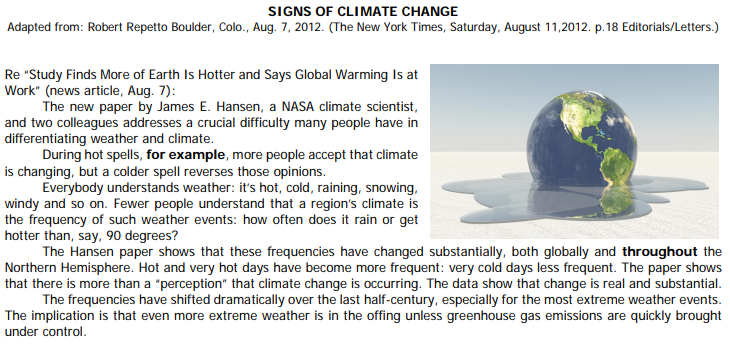
The idea of the connective “for example", in line 6 is:
Analyze the fragment below.
[…] the carbon emissions driving climate change are impossible to ignore: Tourism is now believed to ______ 8% of global emissions.
Choose the best option that completes the context above.
Observe the sentence below.
“I found all these performances lackluster at best, ____________________ I am hoping they will prove me wrong in the next round".
Identify the option that completes the context giving the idea of contrasting.
Atenção: Para responder à questão, considere o texto abaixo.
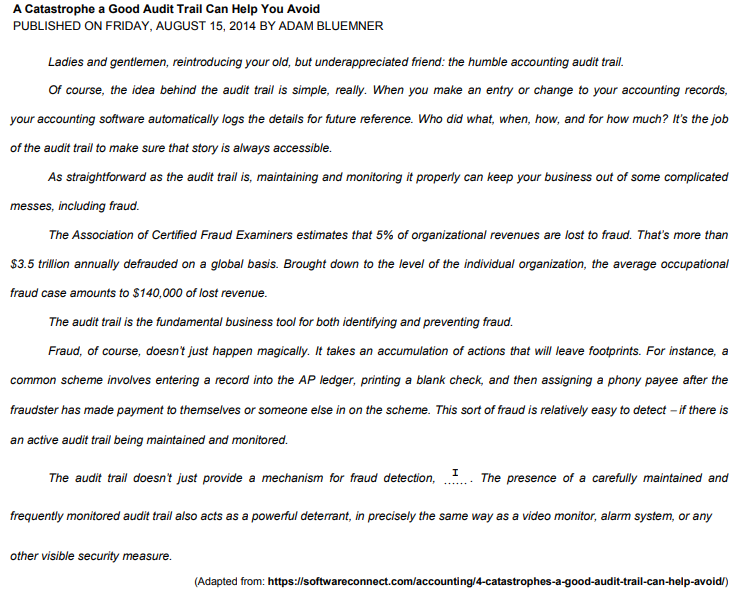
Preenche corretamente a lacuna I apresentada no texto:

